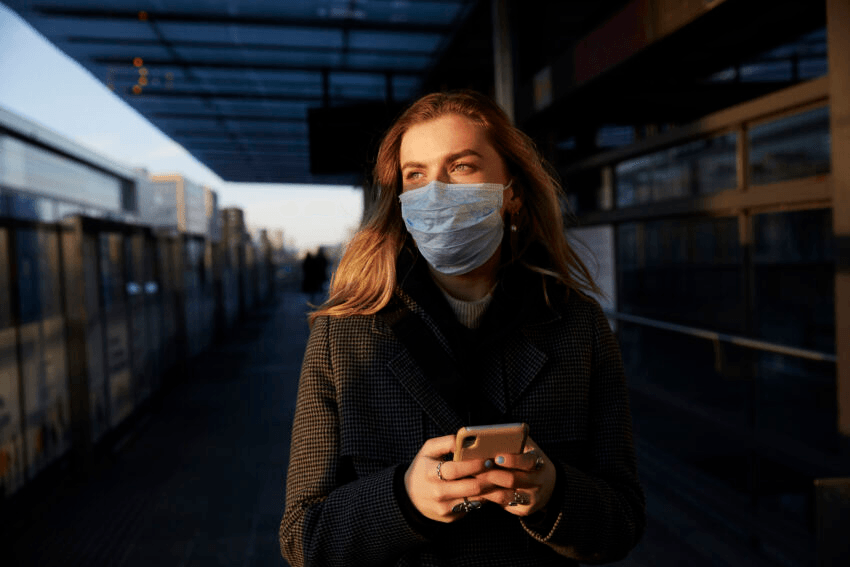Over lockdown, mental health hotlines saw a massive spike in calls and texts from distressed New Zealanders. Their numbers still haven’t returned to normal, and growing research suggests demand won’t be going away anytime soon.
In April and May, Lifeline experienced a 25% increase in calls and texts from people in distress. For many, lockdown was a high-stress situation. It wasn’t easy to cope with sudden, massive lifestyle changes like working from home and homeschooling. For others, more physical concerns like domestic violence and drug and alcohol withdrawal threatened lives. Then, of course, there was the fear of Covid-19 itself.
On May 4, just a week into alert level three, Lifeline fielded 493 calls: the highest volume since its inception over half a century ago. Lifeline’s clinical manager, Renee Mathews, said the calls have decreased since May but remain above normal levels.
“Lockdown exacerbated any existing relationship issues, and financial uncertainty has become a major stressor for many of our callers,” she said. “The future with regards to finances and employment is looking grim, and without the strong sense of purpose and social cohesion we had as a nation over lockdown, I expect the demand on our service will remain high.”
Research from IPSOS, a data supplier for organisations including the Mental Health Foundation, supports this with research conducted since the move to alert level one showing that the Covid-19 pandemic is still perceived as a threat to New Zealanders both physically and financially. A recent survey from Massey University also shows that half of its 1,000 respondents experienced depression over lockdown, and one in three lost their jobs.
The IPSOS report shows personal finances (54% of respondents) have replaced relationships with family and friends (41%) as the primary threat to mental wellbeing. While most of us (80%) believe the government performed well throughout the crisis, we know there’s a recession coming, with some of us already in it. The Massey University survey showed Māori were disproportionately affected by the economic downturn; they were more than twice as likely as Pākehā to report that they or a household member had lost a job.
While there’s currently no known community transmission, half of IPSOS’s respondents believe a second wave is likely. More than half of Māori believe their health will be affected seriously or extremely seriously by Covid-19.
This means we’re not yet back to normal; background Covid-19 anxiety is still affecting the way we live our lives. Even at level one, 44% of respondents reported still being nervous about leaving home. Most predicted it would be at least a year before things really returned to normal.
Cole Armstrong co-founded the 2020 Vision Project with fellow behavioural insights specialist Mark Finnegan. The two of them have been conducting in-depth interviews with New Zealanders at six-week intervals since the beginning of the pandemic. Armstrong said anxiety was a common theme in their interviews. “I don’t think anybody we spoke to was 100% feeling comfortable with what was going on,” he said.
“Everybody could reference some subtle change in behaviour they attributed to Covid-19. Usually not major, but there nonetheless. That might mean they were going out less, it might mean they were having more dinners at home, it might mean they were using hand sanitiser.”
Armstrong said he could understand how the way we’ve dealt with Covid-19 might lead to the hostility many returning New Zealanders are facing.
“What we heard was that Covid-19 [won’t be] here so long as those people at the border play their part,” he said. “This idea of the team of five million definitely came through in interviews. People are quite proud of that. That we did this, we controlled it, and we did our part.”
“I think it’s the way we see ourselves as a group. There has to be an ‘in’ group and an ‘out’ group, and in this instance there’s us – a team of five million – and then there are those people over there.”
We’re no longer in lockdown, but the effects of Covid-19 were always going to last longer than that. The threat of future community transmission, and the very immediate economic downturn we’re facing, could exacerbate those same financial and relationship issues that were strained over lockdown.
“We’ve got working professionals, blue-collar workers, people with families, people living by themselves,” said Armstrong. “They’ve all got different stories, but is there a universal feeling that they have? Yes, the risk hasn’t disappeared.”
Need to talk? Free call or text 1737 any time for support from a trained counsellor.
Lifeline – 0800 543 354 (0800 LIFELINE) or free text 4357 (HELP).
Youthline – 0800 376 633, free text 234, email talk@youthline.co.nz or online chat.
Samaritans – 0800 726 666.
Shine (domestic violence) – 0508 744 633
Women’s Refuge – 0800 733 843 (0800 REFUGE)
